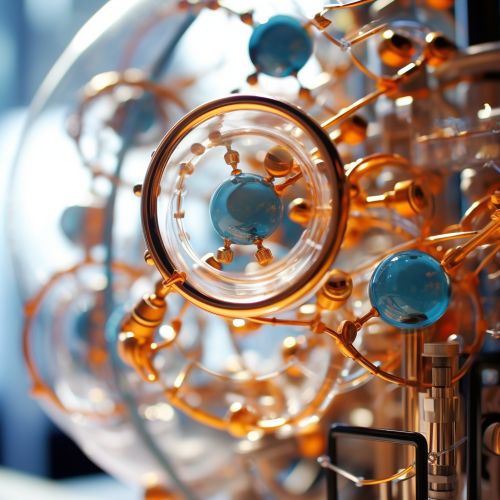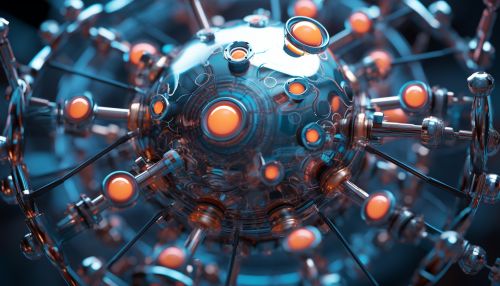Molecular Machines and Nanoscale Robotics
Introduction
Molecular machines, also known as nanomachines, are devices that have the ability to perform mechanical tasks at the nanoscale. These machines are typically composed of molecular components, such as proteins and DNA, which are assembled in a manner that allows them to perform specific functions. The study and development of these machines is a key aspect of nanotechnology, and has the potential to revolutionize various fields, including medicine, manufacturing, and computing.


History and Development
The concept of molecular machines was first proposed in the late 20th century, with the advent of nanotechnology. Early pioneers in the field, such as Richard P. Feynman and K. Eric Drexler, envisioned the possibility of manipulating individual atoms and molecules to create tiny machines capable of performing complex tasks. This idea was initially met with skepticism, but has since gained widespread acceptance as advances in technology have made it possible to observe and manipulate individual molecules.
Structure and Function
Molecular machines are composed of a variety of molecular components, each with a specific role to play. These components are typically assembled in a precise arrangement, allowing the machine to perform its intended function. For example, a molecular motor might consist of a rotor, a stator, and a power source, all composed of individual molecules. The power source provides energy to the rotor, causing it to rotate and perform mechanical work.
Applications
Molecular machines have a wide range of potential applications, many of which are still in the experimental stage. In medicine, for example, molecular machines could be used to deliver drugs directly to specific cells, improving the effectiveness of treatments and reducing side effects. In manufacturing, molecular machines could be used to assemble products at the nanoscale, potentially leading to more efficient production processes and higher-quality products. In computing, molecular machines could be used to create ultra-dense memory devices, potentially revolutionizing the field of data storage.
Challenges and Future Directions
Despite the significant progress that has been made in the field of molecular machines, there are still many challenges to be overcome. One of the main challenges is the difficulty of controlling individual molecules in a precise and reliable manner. Another challenge is the need to develop methods for assembling molecular machines on a large scale. Despite these challenges, the field of molecular machines continues to advance, and it is likely that we will see many exciting developments in the coming years.
